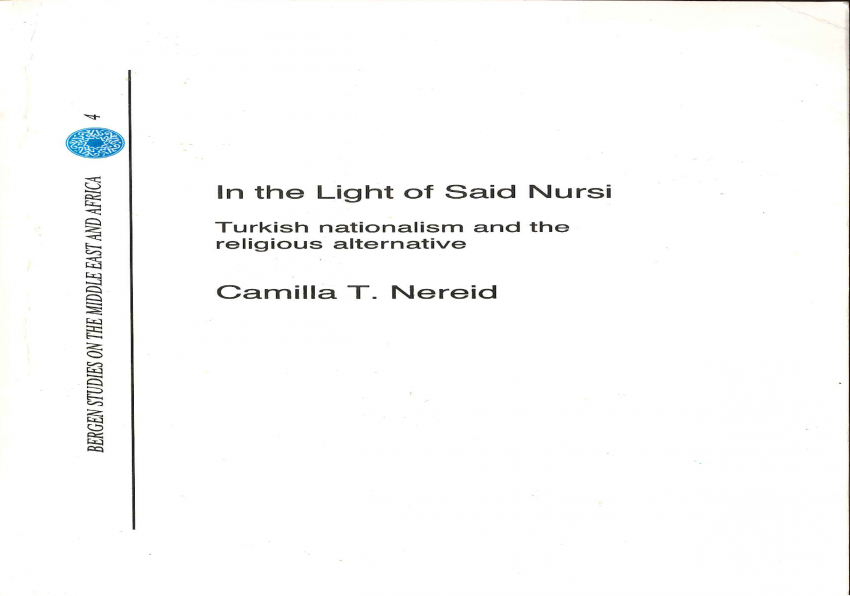Kitabın üstüne tıklayarak pdf dosyasına ulaşabilirsiniz.
İngilizce
Said Nursi (1873-1960), the founder of one of the most important religious movements of modern Turkey, was throughout his life faced with opposition and distrust from the Kemalist state. He was presented as a madman, a Muslim fanatic and a Kurdish nationalist. While other religious groups were persecuted when they incited revolts, the Nurcus were taken to court simply for being Nurcus. Yet Said Nursi, an early supporter of Mustafa Kemal, had come to accept many of the tenets of the new state. He only gave his own interpretation to such concepts of secularism, seeing it as the state's withdrawal from the religious arena, rather than a change to religion itself. He did, however, reject the concept of nationalism, both in its Kurdish and Turkish form. This was his main intellectual challenge to the new state, and the reason is movement was targeted for harassment more than the Naksibendis and other religious groups who accepted the idea of a Turkish nation.
Türkçe
Modern Türkiye'nin en önemli dini hareketlerinden birinin kurucusu olan Said Nursi (1873-1960) hayatı boyunca Kemalist devletin muhalefeti ve güvensizliği ile karşı karşıya kaldı. Deli, Müslüman fanatik ve Kürt milliyetçisi olarak sunuldu. Diğer dini gruplara ayaklanmaları kışkırttıklarında zulmedilirken, Nurcular sırf Nurcu oldukları için mahkemeye çıkarıldı. Ancak Mustafa Kemal'in ilk destekçilerinden olan Said Nursi, yeni devletin birçok ilkesini kabul etmeye başlamıştı. Bu tür laiklik kavramlarına yalnızca kendi yorumunu yaptı ve bunu dinin kendisinde bir değişiklikten ziyade devletin dini arenadan çekilmesi olarak gördü. Ancak milliyetçilik kavramını hem Kürtçe hem de Türkçe biçiminde reddetti. Bu onun yeni devlete karşı temel entelektüel meydan okumasıydı ve bunun nedeni, hareketin Naksibendilerden ve Türk milleti fikrini kabul eden diğer dini gruplardan daha fazla tacize uğramasıydı.

